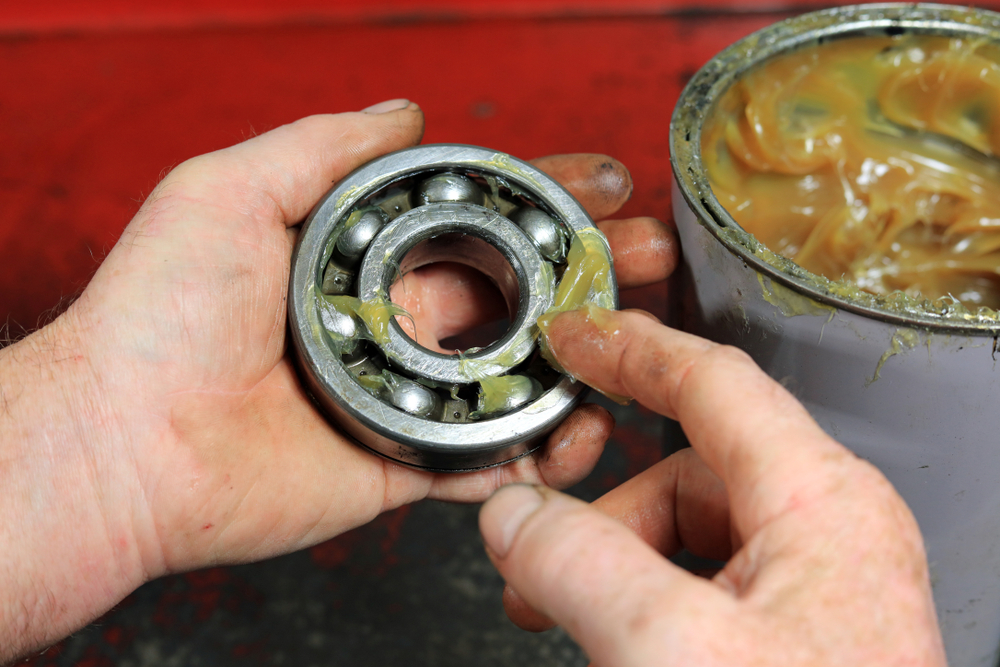According to a study performed by the Noria Corporation, the number one root cause of electric motor failure is bearings. At 51% this cause of failure far exceeds the number two reasons–windings and external sources– both at 16% each. And the best way to protect your bearings from wear and tear is to have a regular bearing lubrication schedule in place as part of your electric motor preventive maintenance program.

Although your electric motor manufacturer’s recommendations should always be the final word on how often you need to apply lubrication to your motor bearings, there are many factors that should always be taken into consideration when deciding if and when to apply more lubricant to the bearings.
If your electric motor is critical and runs almost continuously, it will obviously need lubrication more often than those that run only periodically. Keep an eye on how many hours the motor has been in operation in order to determine when the proper time is to re-lubricate the bearings.
The hotter the motor runs, the faster grease and lubricants break down and lose their effectiveness. If your electric motor is in a hotter environment or runs hotter in general, the oxidation rate of the lubricant accelerates and it may bleed more and evaporate faster. So, you need to inspect the motor bearings more often and apply additional lubricant as needed in high temperature environments.
The grease used in most shielded and sealed bearings lasts far longer than the grease used in open ball, roller, and thrust bearings. In general, the larger the bearing, the more lubricant it requires during its lifetime.
Electric motors subjected to more vibration causes the lubricant to flow more freely into the rolling bearing element’s path, heating it up excessively and breaking down the lubricant faster. Because excess vibration may also be an indicator of other problems, it may be a good idea to have an electric motor vibration analysis to help uncover the source of the vibration.
Motors running at high speeds (RPM) tend to breakdown lubricants much faster than those running at lower RPM.
Some bearings use grease, while others use oil to lubricate the bearings and using the wrong type or viscosity of lubricant can have a negative impact on the overall operation of the bearing. Always follow the exact lubricant type recommendations of the bearing manufacturer and do not use lubricants other than those recommended for that bearing.
It is no secret that grease is a dirt magnet, and dirty environments lead to quick contamination of grease and other bearing lubricants. Humidity is another factor that impacts the effectiveness of bearing lubricants. Hostile environments such as these can reduce the duration of lubrication effectiveness to as much as half. So be aware of this when putting your electric motor bearings on a lubrication schedule.
These are just a few of the factors to consider when scheduling preventive maintenance on your electric motors.
Applying lubrication to electric motor bearings is just one of the comprehensive electric motor preventive maintenance services we offer. For more information about our annual preventive maintenance program, give us a call (toll-free) at 1-888-984-4668 or fill out our quick solution form today.